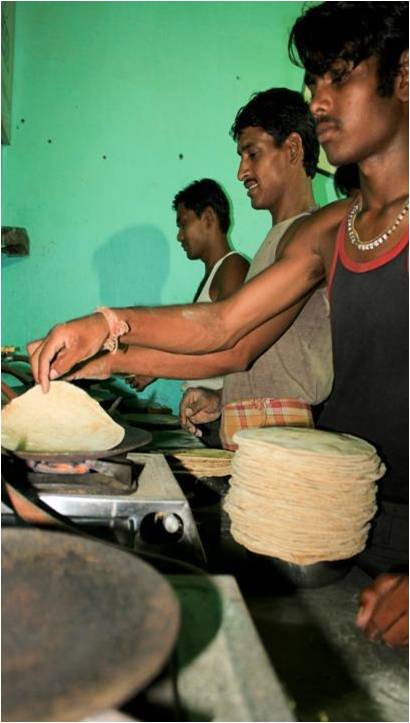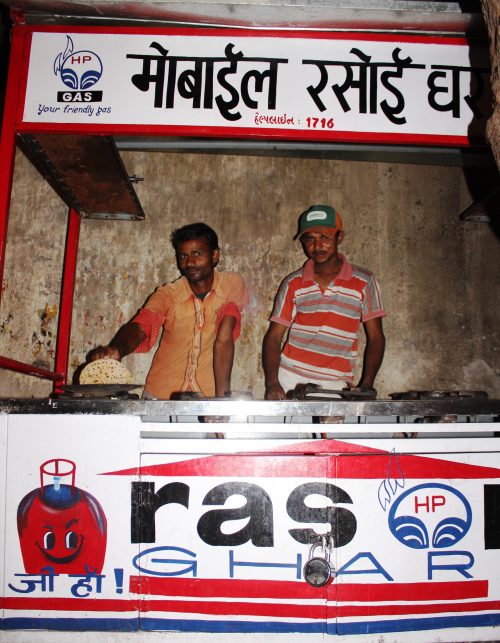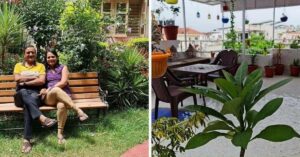How LPG Stoves Are Transforming the Lives of Migrant Workers in Ahmedabad
The workers are usually forced to buy kerosene from the black market at exorbitant rates. Other fuels such as wood are also quite costly.

In Indian cities bustling with economic activity, labour migration from villages in search of better livelihood opportunities has become an undeniable reality.
More and more rural families are making their way to the cities, offering cheap manual labour and populating its informal labour economy. Naturally, a large chunk of migrant workers’ hard-earned wages in the city is spent on food expenses alone.
On account of the lack of portability of Public Distribution System services from one’s registered hometown to the city, one migrates to, migrant workers are unable to access subsidized fuel from ration shops in the city.
The workers are thus forced to buy kerosene from the black market at exorbitant rates. Other fuels such as wood are also quite costly, leading to an overall high expenditure on the procurement of fuels.

Wood and kerosene are also extremely time-consuming fuel options, especially difficult in the evenings when workers are back home after a day of hard toil. Living in cramped rented rooms, open spaces and factory shop-floors, workers regularly cook in unhygienic surroundings which again leads to many health issues like coughs, asthma, sneezing and irritation in the eyes.
It is to improve this grim state of affairs that Aajeevika Bureau, a civil society organization, started a special initiative called “Community Kitchens”. This intends to promote safe, dignified cooking spaces for migrant workers in the city of Ahmedabad, Gujarat.
Established through an active collaboration with Hindustan Petroleum Corporation Limited (HPCL) under their CSR initiative named ‘Sanjha Chulha’, Aajeevika Bureau currently runs about 13 community kitchens in the city.
Under this initiative, kitchens are collectively managed by workers, who have access to an LPG connection and a well-furnished kitchen with all basic amenities.

Community kitchens are set up in open spaces, rented room spaces and factory dormitories where kitchens slabs are built and at least three single burner stoves are installed on them. The installation costs are collectively borne by Aajeevika Bureau and the community members, while the rent for the premises and the refilling costs are to be borne by the community members on a contributory basis.
Community members take up the responsibility of maintaining logs of usage, charging user fees as well as the overall running and maintenance of the kitchen.
Over the years, community kitchens have reached out to more than 500 workers across 13 locations in the city of Ahmedabad. Migrant workers, engaged in construction as well as in industrial work have been the major beneficiaries of this initiative.
Most workers who are part of community kitchens have a clear savings of about 60-70% on switching from wood/kerosene towards LPG. There is a clear time saving of about 2- 3 hours per day per person due to the use of LPG, and associated savings in their effort as well.
This translates into more prompt and regular presence at the Nakas (labour points), which gives them a better chance of securing work on a daily basis.

Community kitchens have also evolved into social spaces where workers sit together, have fun, talk about their work and things about the village. Thus kitchens contribute to enhancing social cohesion and bonding among the workers.
The health benefits of cooking on an LPG connection are experienced and articulated very clearly by workers. LPG being a safe, clean fuel, prevents their exposure to excessive heat, dust and smoke which in turn reduces associated health risks.
Community kitchens in Ahmedabad provide them access to a clean, cooking space thus insulating them from the hazards of cooking in dirty surroundings. The ease of cooking in an LPG connection makes it easier for the workers to cook and consume food regularly, which has huge positive implications on their state of nutrition and well-being.
One of the most valuable measures of impact is a testimony we received from Devilal, a construction worker who has been instrumental in setting up and running a community kitchen in Paldi, Ahmedabad.
He says “As we have community kitchen now, we are able to cook and eat food with dignity”. Thus Community kitchens offer a remarkably dignified cooking space for workers, for whom the alternative was to cook in sub-optimal unhygienic spaces. This contributes tremendously to their self-esteem and overall sense of wellbeing.
About The Author: Sangeeth S is a Research Executive with Aajeevika Bureau, a research and development organization working on migration and informal labour in India.
(Edited by Vinayak Hegde)
Like this story? Or have something to share?
Write to us: [email protected]
Connect with us on Facebook and Twitter.
NEW: Click here to get positive news on WhatsApp!
If you found our stories insightful, informative, or even just enjoyable, we invite you to consider making a voluntary payment to support the work we do at The Better India. Your contribution helps us continue producing quality content that educates, inspires, and drives positive change.
Choose one of the payment options below for your contribution-
By paying for the stories you value, you directly contribute to sustaining our efforts focused on making a difference in the world. Together, let's ensure that impactful stories continue to be told and shared, enriching lives and communities alike.
Thank you for your support. Here are some frequently asked questions you might find helpful to know why you are contributing?


This story made me
-
97
-
121
-
89
-
167














